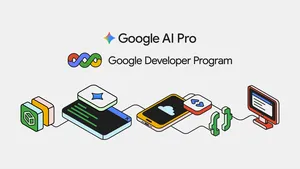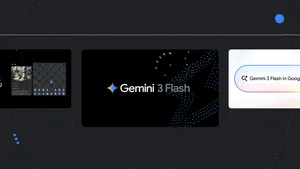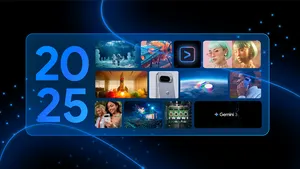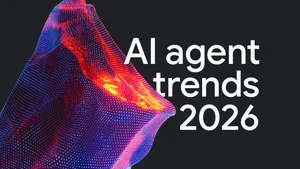An AI Resident at work: Suhani Vora and her work on genomics
Suhani Vora is a bioengineer, aspiring (and self-taught) machine learning expert, SNES Super Mario World ninja, and Google AI Resident. This means that she’s part of a 12-month research training program designed to jumpstart a career in machine learning. Residents, who are paired with Google AI mentors to work on research projects according to their interests, apply machine learning to their expertise in various backgrounds—from computer science to epidemiology.
I caught up with Suhani to hear more about her work as an AI Resident, her typical day, and how AI can help transform the field of genomics.
Phing: How did you get into machine learning research?
Suhani: During graduate school, I worked on engineering CRISPR/Cas9 systems, which enable a wide range of research on genomes. And though I was working with the most efficient tools available for genome editing, I knew we could make progress even faster.
One important factor was our limited ability to predict what novel biological designs would work. Each design cycle, we were only using very small amounts of previously collected data and relied on individual interpretation of that data to make design decisions in the lab.
By failing to incorporate more powerful computational methods to make use of big data and aid in the design process, it was affecting our ability to make progress quickly. Knowing that machine learning methods would greatly accelerate the speed of scientific discovery, I decided to work on finding ways to apply machine learning to my own field of genetic engineering.
I reached out to researchers in the field, asking how best to get started. A Googler I knew suggested I take the machine learning course by Andrew Ng on Coursera (could not recommend it more highly), so I did that. I’ve never had more fun learning! I had also started auditing an ML course at MIT, and reading papers on deep learning applications to problems in genomics. Ultimately, I took the plunge and and ended up joining the Residency program after finishing grad school.
Tell us about your role at Google, and what you’re working on right now.
I’m a cross-disciplinary deep learning researcher—I research, code, and experiment with deep learning models to explore their applicability to problems in genomics.
In the same way that we use machine learning models to predict the objects are present in an image (think: searching for your dogs in Google Photos), I research ways we can build neural networks to automatically predict the properties of a DNA sequence. This has all kinds of applications, like predicting whether a DNA mutation will cause cancer, or is benign.
What’s a typical day like for you?
On any given day, I’m writing code to process new genomics data, or creating a neural network in TensorFlow to model the data. Right now, a lot of my time is spent troubleshooting such models.
I also spend time chatting with fellow Residents, or a member of the TensorFlow team, to get their expertise on the experiments or code I’m writing. This could include a meeting with my two mentors, Mark DePristo and Quoc Le, top researchers in the field of machine learning who regularly provide invaluable guidance for developing the neural network models I’m interested in.
What do you like most about the AI Residency program? About working at Google?
I like the freedom to pursue topics of our interest, combined with the strong support network we have to get things done. Google is a really positive work environment, and I feel set up to succeed. In a different environment I wouldn’t have the chance to work with a world-class researcher in computational genomics like Mark, AND Quoc, one of the world’s leading machine learning researchers, at time same time and place. It’s pretty mind-blowing.
What kind of background do you need to work in machine learning?
We have such a wide array of backgrounds among our AI Residents! The only real common thread I see is a very strong desire to work on machine learning, or to apply machine learning to a particular problem of choice. I think having a strong background in linear algebra, statistics, computer science, and perhaps modeling makes things easier—but these skills are also now accessible to almost anyone with an interest, through MOOCs!
What kinds of problems do you think that AI can help solve for the world?
Ultimately, it really just depends how creative we are in figuring out what AI can do for us. Current deep learning methods have become state of the art for image recognition tasks, such as automatically detecting pets or scenes in images, and natural language processing, like translating from Chinese to English. I’m excited to see the next wave of applications in areas such as speech recognition, robotic handling, and medicine.
Interested in the AI Residency? Check out submission details and apply for the 2018 program on our Careers site.





